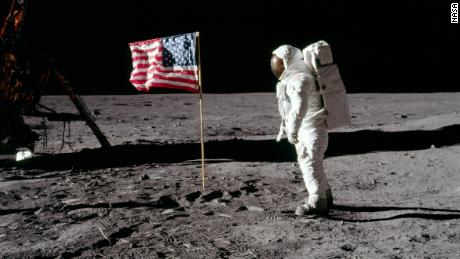By Michelle L.D. Hanlon, University of Mississippi

Updated 0850 GMT (1650 HKT) January 21, 2021
NASA astronaut Buzz Aldrin is shown with the US flag on the lunar surface during the Apollo 11 mission July 20, 1969. The US One Small Step to Protect Human Heritage in Space Act became law December 31, 2020.
NASA astronaut Buzz Aldrin is shown with the US flag on the lunar surface during the Apollo 11 mission July 20, 1969. The US One Small Step to Protect Human Heritage in Space Act became law December 31, 2020.
(The Conversation)It's hard to care about bootprints sunk in soil 238,900 miles away as humanity suffers the combined burden of an unforgiving virus and a political unease. But how humans treat those bootprints and the historic lunar landing sites upon which they are found will speak volumes about who we humans are and who we seek to become.
On December 31, 2020, the One Small Step to Protect Human Heritage in Space Act became law. As far as laws go, it's pretty benign. It requires companies that are working with the National Aeronautics and Space Administration on lunar missions to agree to be bound by otherwise unenforceable guidelines intended to protect American landing sites on the moon. That's a pretty small pool of affected entities. However, it is also the first law enacted by any nation that recognizes the existence of human heritage in outer space. That's important because it reaffirms our human commitment to protecting our history -- as we do on Earth with sites like the Historic Sanctuary of Machu Picchu, which is protected through instruments like the World Heritage Convention -- while also acknowledging that the human species is expanding into space.
I am a lawyer who focuses on space issues that seek to ensure the peaceful and sustainable exploration and use of space. I believe that people can achieve world peace through space. To do so, we must recognize landing sites on the moon and other celestial bodies as the universal human achievements they are, built on the research and dreams of scientists and engineers spanning centuries on this globe. I believe that the One Small Step Act, enacted in a divisive political environment, demonstrates that space and preservation truly are nonpartisan, even unifying principles
https://edition.cnn.com/2021/01/21/world/astronaut-artifacts-on-moon-scn-partner/index.html